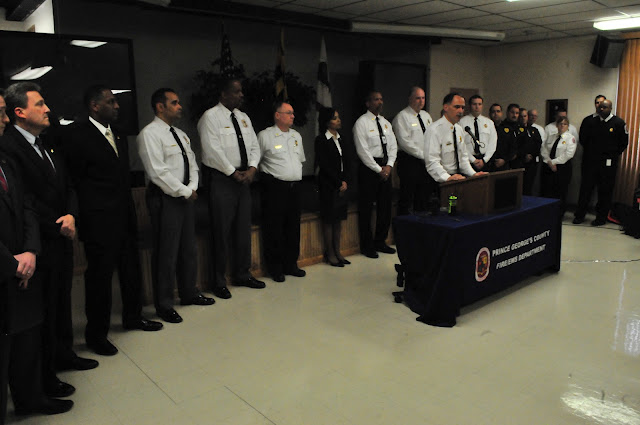Defending the indefensible: DC 911 director tries to explain away 4-minute dispatch to deadly fire
Karima Holmes makes more excuses that defy credibility
Looking for a quality used fire truck? Selling one? Visit our sponsor Command Fire Apparatus
It’s hard to know where to begin after listening to DC 911 director Karima Holmes testify this (Monday) afternoon about a delay dispatching DC Fire & EMS to a deadly house fire in August. Holmes tied herself in knots trying to explain to DC council members there was good reason four-minutes were needed to send firefighters to the fire called in by a police officer using his radio. Many of her answers–like the ones Holmes gave previously to reporters–defy credibility and show a lack of knowledge about DC Fire & EMS operations. The good news is DC Council Chairman Phil Mendelson and members Elissa Silverman and Charles Allen were very skeptical of the excuses Holmes provided.
This is apparently the first time in her almost four-years running the Office of Unified Communications (OUC) that Holmes has received pointed and critical questioning at a council hearing. This attention is long overdue. There’s so much to cover I urge you to listen to all three parts of the testimony on this page because I’m sure I’ll miss some of the highlights. (The three excerpts on this page cover the questioning of Karima Holmes. To see the entire hearing, click here.)
The fire, discovered by the Metropolitan Police Department officer on patrol, took the lives of a young boy and a man. The officer called in the fire while attempting to get into the home to rescue the pair. The officer immediately told a police dispatcher there was a fire at 708 Kennedy Street, NW and he needed the fire department to respond. He soon let the OUC dispatcher know there was someone trapped. The basic explanation for the delay, according to Holmes, is that dispatchers were waiting to learn if the fire was inside or outside and the type of structure before dispatching DC Fire & EMS. One of the questions that wasn’t asked is this: “If you never got those answers, how much longer than four-minutes would OUC have delayed the call before dispatching the fire department?”
What I did learn from the questioning is that Karima Holmes–like much of her staff–seems to know very little about the operations of the DC Fire & EMS Department. During her testimony Holmes referred to the department as sending “tankers” to building fires. Holmes also testified the first unit at the scene of the Kennedy Street fire was a “rescue engine.” It wasn’t an engine. It was a heavy rescue, Rescue Squad 2. Remember, Holmes has been on the job since January, 2016.
In addition, Holmes made it clear she thought it better to not send anything than to send the wrong amount of fire apparatus to the police officer’s urgent call for help. Director Holmes doesn’t seem to understand that once the first firefighters arrive they’ll be sure to let the 911 center know whether more resources are needed or if some can be sent back to quarters. That’s how the fire department operates every day, on every call.
Holmes spent an enormous amount of time trying to convince the council members that it’s much more difficult and time consuming to process a response called in by a police officer’s radio than by telephone via 911. The only way I can figure that’s a true statement is if your 911 center is staffed by people who aren’t trained in the basic mission of the agency.
Sitting with Holmes during her testimony was her boss, Kevin Donahue, the Deputy Mayor for Public Safety and Justice. Donahue supported the explanations provided by Holmes. Donahue also provided a weak explanation to Elissa Silverman’s question on why there was no independent investigation of OUC’s role in the Kennedy Street response. OUC was left out of an investigation into three other city agencies, including the fire department, for failing to deal with serious life safety issues discovered by a police officer at the Kennedy Street address prior to the fire.
The saddest excuse from Holmes was when she tried to downplay the delay by pointing out the four-minute dispatch time was only 90-seconds more than OUC’s average 2.5 minute processing times for the highest priority calls. What that explanation leaves out is that OUC’s 2.5 minute average is already 90-seconds above NFPA standards.
If it wasn’t clear to anyone before, it should be now. DC 911 needs new leadership and a complete overhaul, immediately.




